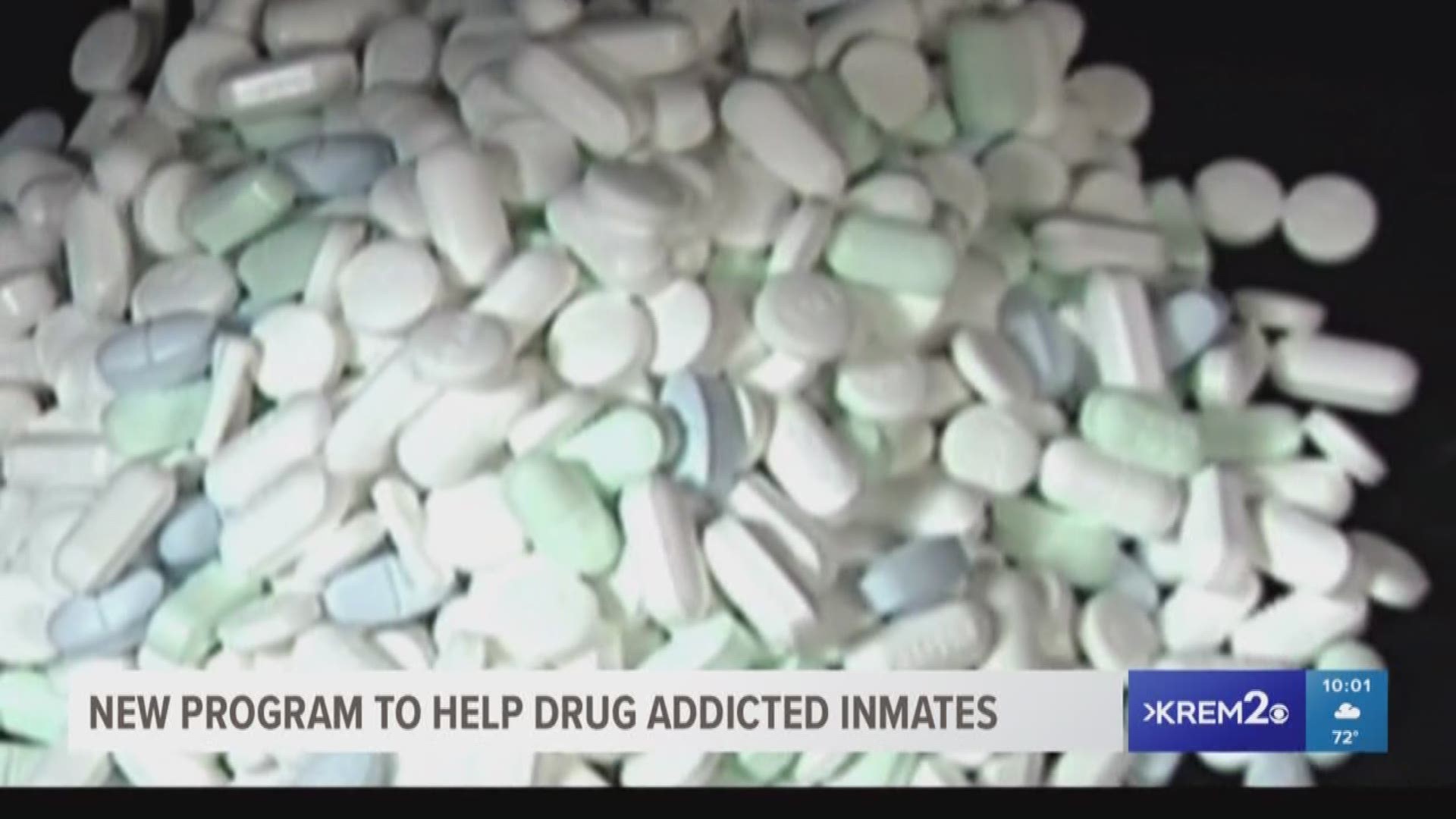SPOKANE COUNTY, Wash. — Spokane County Jail is adding a new program starting Sept. 10 to help inmates in the process of withdrawing from opioids.
According to the Bureau of Justice Statistics, two-thirds of jail inmates across the nation are dependent on drugs or alcohol or are abusing them.
Spokane County Detention Services is joining thirteen other jails across the country in the new approach and will be working with correctional healthcare company NaphCare.
The approach gradually reduces the buprenorphine drug to patients who have sufficiently severe withdrawal symptoms. The new program is expected for patients to not only withdraw safely, but to also remove the severe sickness associated with withdrawals.
“Opioid withdrawal can result in dehydration and electrolyte imbalances that can become life threatening. We believe that the best approach is to prevent the withdrawal symptoms altogether by administering a buprenorphine taper, rather than allowing symptoms to manifest and managing them afterward," said NaphCare Chief Medical Officer Dr. Emily Feely.
Spokane County Commissioners and Detention Services staff expect the new approach to reduce the risk of suicides in jail associated with opioid addictions.
“While it is difficult to quantify the impact this program will have, we believe that reducing patient suffering during opioid withdrawal is a necessary step we need to take to decrease the risk of patients attempting suicide in our Spokane County Jail," said Josh Kerns, Chair of the Spokane County Board of Commissioners.
Spokane Country Jail Director John McGrath has seen first hand the struggles of coming down from a high.
"From our perspective managing people who are going through crisis and having those medical issues it's a lot easier when they feel better," said McGrath.
The idea is if inmates feel better, they'll be able to better handle the often painful withdrawal process and hopefully not want to take their lives.
Naphcare tried out the drug in the Washington County jail outside Portland in 2017 and since then has been trying to get it in the other jails they work with.
"Before all they wanted to do was get high, they would withdrawal, they would go back to getting high when we introduced this medication we kind of open up the door to them in what they could be doing instead of getting high," said Melanie Menear, Registered Nurse, Director of Jail Operations for Oregon and Washington.
Officials hope more inmates will be able to kick the habit inside and stay clean when they're released.
"If they can come back to our communities feeling better they are more likely to be successful, not come back to jail, not go to the ER, not have these medical problems then it's better for our community," said McGrath.

